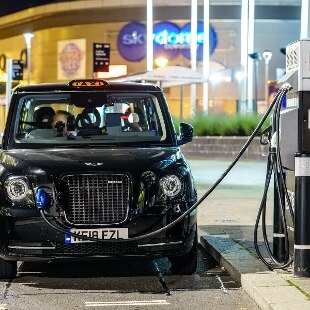Green deal, the European Parliament approves the green change
Ursula Von der Leyen: Green Europe will be the first on the markets
Share
November 18, 2020 In full coronavirus crisis, Boris Johnson promises British citizens a 'greener' future, billions of investments and hundreds of thousands of new jobs.
Her Majesty's government announces that it wants to ban the circulation of all petrol and diesel cars as early as 2030, anticipating the 2040 target set so far.
The plan, anticipated in the evening from Downing Street, indicates that hybrid vehicles will instead continue to circulate in the Kingdom until 2035. An exception that is not enough to appease the complaints already leaked in the media in recent days by various manufacturers and the association of the British automotive industry.
The objective of the Tory government - confirms the premier, however - remains to make the transition to a national park of fully electric vehicles much faster than the commitments made so far and also the programs of other major Western countries.
Among the points of his promised "revolution" towards a new "green economy", BoJo - who on this dossier has already openly said that he is counting on finding in Joe Biden a very different side from the American ally compared to the era of pur 'friend' outgoing president Donald Trump - puts 1.3 billion pounds of investment on the plate over the next decade to finance the installation of widespread charging stations for electric car batteries at buildings and along roads;
582 million in non-repayable loans for the purchase of low or zero emission vehicles in the intermediate phase;
500 million in appropriations for the conversion of industrial lines, especially in the auto and related factories of the Midlands and north-east England.
The hope of Johnson and the Tories, who are lagging behind consensus in the polls, is that the initiative could generate up to 250,000 jobs.
Another 500 million pounds is earmarked for testing the use of hydrogen in homes for heating and cooking.
The government also intends to support the development of clean HGV diesel engines for freight transport and the construction of hydrogen heating systems intended to cover the needs of a first entire city by the end of the decade, but not without relaunching a program of small nuclear power plants. and medium size.
In addition to outlining ecological projects to plant new carpet trees, for the rehabilitation of naturalistic sites and green areas, for the multiplication of cycle and pedestrian paths.
Finally, a future availability of wind-powered household systems in every home over the next 10 years was also evoked.
In Berlin, the German government continues to invest heavily in electricity.
The German auto industry will receive up to € 5bn in public aid to continue the transition to electric cars.
Angela Merkel's government wants at least 25% of all gas stations to be equipped with fast charging infrastructure by the end of 2022, 50% by 2024 and 75% by the end of 2026. This means that in Germany, as early as 2021, there will be 72,000 publicly accessible charging points.

